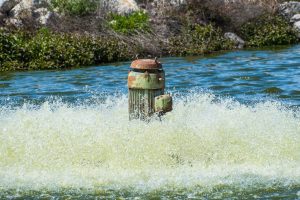Maximizing the lifespan of your pump: The benefits of monthly upkeep
 Pumps are essential machines that help transfer fluids from one place to another. They are used in various industries, including agriculture, construction, and manufacturing. However, like any other machine, pumps require regular maintenance to extend their lifespan and avoid breakdowns. Neglecting your pump’s maintenance can lead to costly repairs, production downtime, and even safety hazards. In this article, we will discuss the benefits of monthly upkeep and the steps you can take to maximize the lifespan of your pump. Whether you are a farmer, construction worker, or factory owner, this article is for you. So, buckle up and let’s dive into the world of pump maintenance!
Pumps are essential machines that help transfer fluids from one place to another. They are used in various industries, including agriculture, construction, and manufacturing. However, like any other machine, pumps require regular maintenance to extend their lifespan and avoid breakdowns. Neglecting your pump’s maintenance can lead to costly repairs, production downtime, and even safety hazards. In this article, we will discuss the benefits of monthly upkeep and the steps you can take to maximize the lifespan of your pump. Whether you are a farmer, construction worker, or factory owner, this article is for you. So, buckle up and let’s dive into the world of pump maintenance!
The importance of monthly upkeep
Pumps are machines that are used to transfer fluids from one location to another. They are used in various industries, including agriculture, manufacturing, and construction. However, like any other machine, pumps require regular maintenance to ensure their proper functioning. Neglecting your pump’s maintenance can lead to costly repairs, production downtime, and even safety hazards.
Monthly upkeep of your pump is essential to ensure that it is functioning correctly. It involves checking the pump’s parts, cleaning or replacing filters, and ensuring that the pump is lubricated. By performing monthly upkeep, you can extend your pump’s lifespan and avoid breakdowns.
Neglecting your pump’s maintenance can lead to significant problems. For instance, if the pump is not maintained correctly, it can lead to leaks, which can result in hazardous conditions. Additionally, neglecting the pump’s maintenance can lead to costly repairs, which can affect your business’s bottom line.
Common causes of pump failure
Several factors can cause pump failure. One of the most common causes of pump failure is a lack of regular maintenance. When pumps are not maintained, dirt, debris, and other contaminants can build up in the pump’s system, which can cause the pump to fail.
Another common cause of pump failure is the use of low-quality materials. Using low-quality materials can cause the pump to wear out quickly, leading to pump failure. Additionally, operating the pump under high pressure or at high temperatures can also cause pump failure.
Benefits of regular maintenance
Regular maintenance of your pump can provide several benefits. One of the significant benefits of regular maintenance is that it can extend the pump’s lifespan. By performing regular maintenance, you can ensure that the pump is functioning correctly.
Another benefit of regular maintenance is that it can reduce the risk of pump failure. By performing regular maintenance, you can identify any potential problems and fix them before they become significant issues. Additionally, regular maintenance can help you save money on costly repairs and reduce production downtime.
How to perform monthly maintenance
Performing monthly maintenance on your pump is relatively easy. The following are the steps you can take to perform monthly maintenance on your pump:
Turn off the pump: Before performing any maintenance on the pump, ensure that the pump is turned off.
Check the pump’s parts: Check the pump’s parts for any signs of wear and tear. Ensure that all the parts are functioning correctly.
Clean or replace filters: Clean or replace the pump’s filters to ensure that they are working correctly.
Lubricate the pump: Lubricate the pump’s parts to ensure smooth functioning.
Test the pump: Finally, test the pump to ensure that it is functioning correctly.
Signs that your pump needs professional servicing
While performing regular maintenance can help keep your pump functioning correctly, sometimes your pump may require professional servicing. The following are signs that your pump needs professional servicing:
Your pump is making unusual noises.
The pump is leaking.
The pump is not working correctly.
The pump is vibrating excessively.
If you notice any of these signs, it is essential to contact a professional to service your pump.
Best practices for maximizing pump lifespan
In addition to regular maintenance, the following are best practices that can help maximize your pump’s lifespan:
Use quality parts and materials: Using quality parts and materials can help ensure that your pump functions correctly and lasts longer.
Operate the pump at the recommended pressure and temperature: Operating the pump at the recommended pressure and temperature can help prevent pump failure.
Regularly monitor the pump’s performance: Regularly monitoring the pump’s performance can help identify any potential problems and fix them before they become significant issues.
Importance of using quality parts and materials
Using quality parts and materials is essential for maximizing your pump’s lifespan. Quality parts and materials can help ensure that your pump functions correctly and lasts longer. Additionally, using low-quality parts and materials can cause the pump to wear out quickly, leading to pump failure.
When purchasing parts and materials for your pump, it is crucial to ensure that you are purchasing high-quality products from reputable suppliers.
Cost savings of regular maintenance
Performing regular maintenance on your pump can help you save money in the long run. Regular maintenance can help prevent costly repairs and production downtime. Additionally, regular maintenance can help extend the pump’s lifespan, which can help you save money on purchasing a new pump.
Conclusion
In conclusion, performing monthly upkeep on your pump is essential for maximizing its lifespan. Regular maintenance can help prevent pump failure, save you money on costly repairs and production downtime, and ensure the safety of your employees. By following the steps outlined in this article, you can ensure that your pump is functioning correctly and avoid any potential problems. Remember to use quality parts and materials, regularly monitor the pump’s performance, and seek professional servicing if necessary. By doing so, you can ensure that your pump lasts for many years to come.
